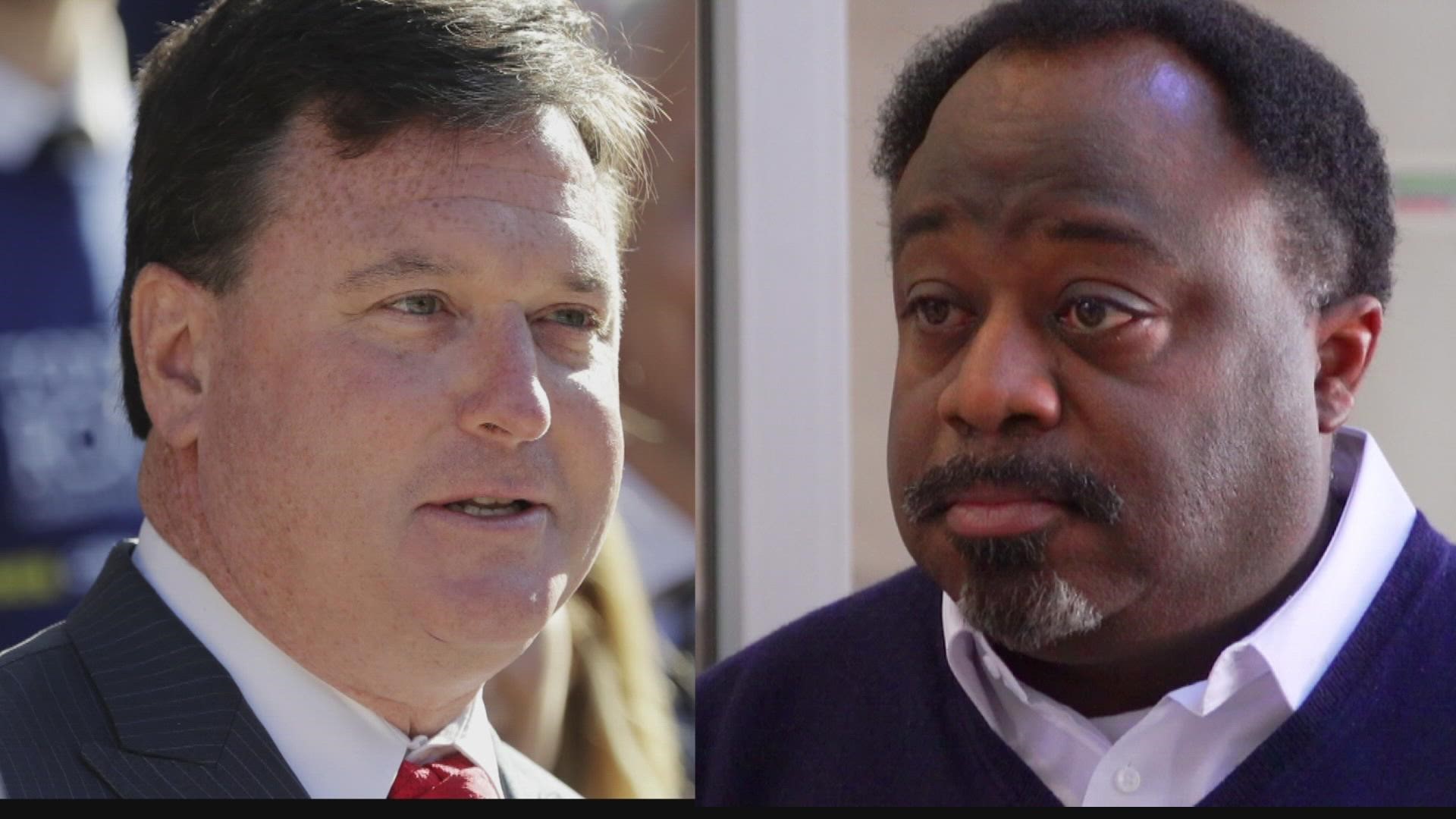INDIANAPOLIS — The American Civil Liberties Union (ACLU) of Indiana is joining journalist Abdul-Hakim Shabazz in a lawsuit against Indiana Attorney General Todd Rokita.
Shabazz has been barred from attending the attorney general’s press conferences since October 2021. At that time, the AG held a news conference for credentialed media only, at which Shabazz was denied entering.
The AG's office issued the following statement after the news conference:
Our press conferences are meant for actual journalists reporting on real issues, instead of gossip columnists. Shabazz, by his own admission, promotes disinformation so much so that he must disclaim his work as “gossip, rumor and blatant innuendo,” in order to escape from being sued for defamation. Therefore, an OAG press conference concerning a serious investigation is not an appropriate venue for Shabazz.
As one of the most transparent offices in government, the OAG carries its press conferences live on Facebook, so all information presented during these events are available to be viewed virtually by Shabazz or anyone else. Anyone can sign-up to receive our releases and advisories, but that does not mean all who receive these alerts will be credentialed or allowed to attend in-person events.
Shabazz has not been denied any public records or been prevented from attending any official public-noticed meetings.
"Do I do a gossip column? Yes, I do. It's one of the many things that I do," Shabazz said.
Shabazz, who has been covering state politics and Indiana government for almost two decades, is currently the editor and publisher of Indy Politics. He is also the host of "Abdul at Large," a weekend radio program at WIBC-FM and the host of "Indiana Issues," a statewide radio public affairs program. He also contributes to a number of Indianapolis media outlets. His degree is in journalism.
"This goes to the heart of the First Amendment and our U.S. Constitution. If Attorney General Rokita can ignore this and ban me from his news conferences, then he can do it to anyone in the press corps, and that can't be good for democracy and transparency," Shabazz said. "If Rokita is going to call for transparency and more openness when it comes to Hoosier public schools, then the least he can do is practice what he preaches when it comes to his own office."
“As the complaint notes, the Attorney General’s decision to ban Mr. Shabazz is based on either personal antipathy or on the opinion that Mr. Shabazz’s reporting is too ‘liberal,’ or perhaps based on both. In either event, the Attorney General’s decision to ban Mr. Shabazz from press events is not viewpoint neutral. Blocking a journalist from attending a press conference because one does not agree with their reporting is a clear violation of the First Amendment,” said ACLU of Indiana Legal Director Ken Falk. “A free media functions as a watchdog that can investigate and report on government actions or wrongdoings.”
Shabazz said the case may bear his name, but it's not about him.
"Here's why it matters," he said. "In order for you to make an informed decision as a voter, you need to know what's going on with your government. And if your government can ban me or any reporter from a government event, not a private event but a public one, then our democracy ... you may as well just flush it down the toilet right now."
While Shabazz continues to be barred from the AG's news conferences, he attends other news briefings at the statehouse as a credentialed member of the press, including with Gov. Eric Holcomb's office.
Rokita's office issued the following statement to 13News in response to the lawsuit:
We will defend and potentially counterclaim against it aggressively since we are confident that our actions are legally sound and needed to protect staff against professional harassment while defending constituents from the "rumors, gossip and blatant innuendo" Shabazz directly admits to peddling, along with his other non-journalism revenue streams. As one of the most accessible and highly covered elected officials in the state, it's clear that Hoosiers know what our Attorney General is doing on their behalf, and they appreciate it.
What defines a "journalist"
In this era of citizen journalism, when anyone can create a blog, podcast, or website and call it "news," what defines a journalist?
13News asked Professor Anthony Fargo, Director of the Center for International Media Law and Policy Studies at Indiana University.
Fargo said the courts have defined a journalist as "anyone who is gathering information with the intent to disseminate it to the public."
But who gets credentialed for official government media events can sometimes get blurry.
Fargo said what's important is that the rules are applied consistently.
"President Trump basically tried to ban two reporters on two different occasions from attending press events. Both reporters sued and they both won," he said. "Is the Attorney General’s office simply discriminating against him because they don’t like what he writes? If that’s true, that’s a violation of the first amendment. Those rules have to be enforced in a content-neutral manner."

